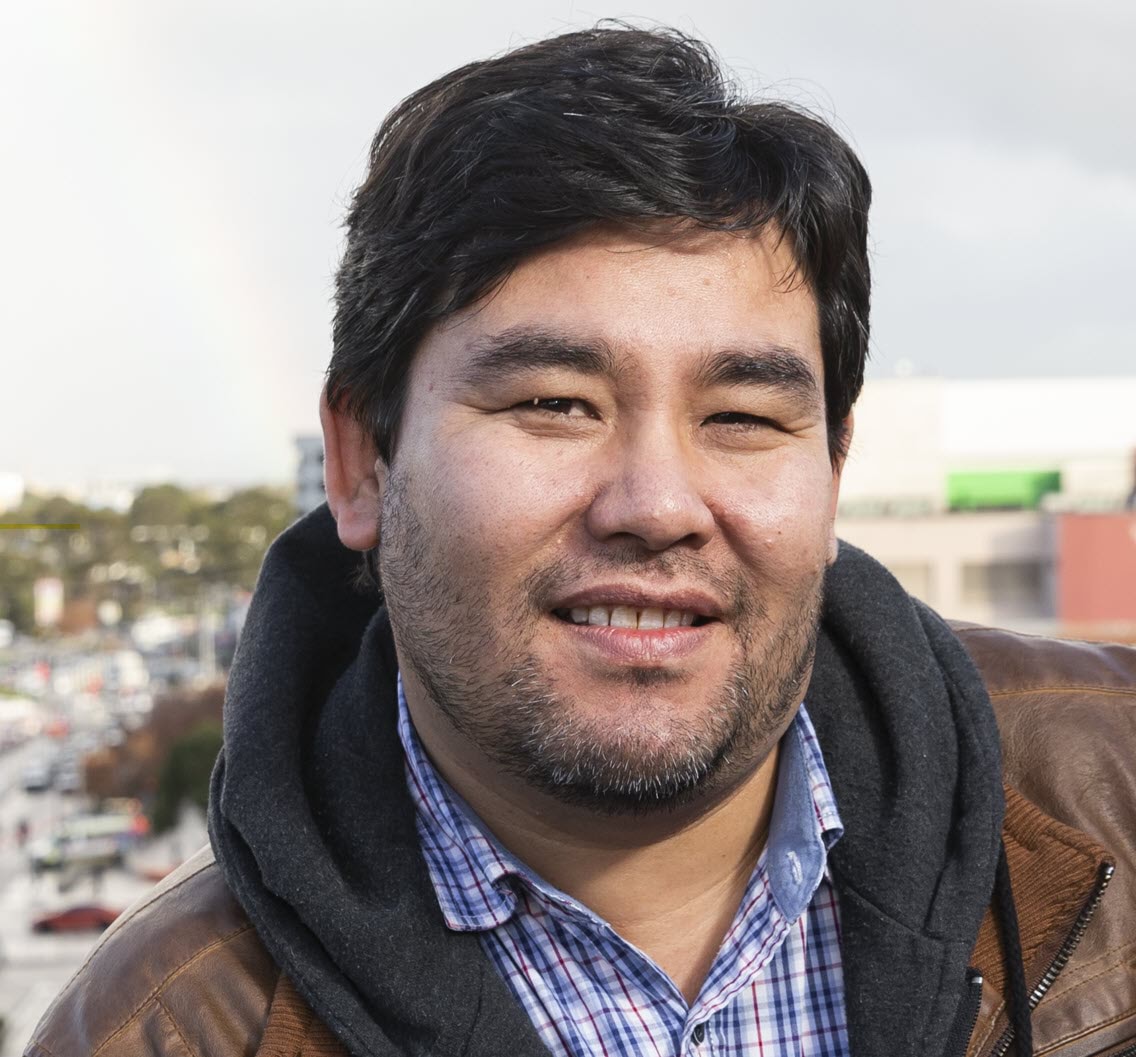Ali Hussain speaks 3 languages and has worked in the community services sector for over 14 years. As program coordinator at inTouch he leads a behaviour change program for men from Asian and Afghan communities who use family violence, many of whom are from migrant or refugee backgrounds.
He believes that family violence can only be stopped by working with men as well as victim survivors. It’s an idea that continues to evoke a range of reactions and debate, both within the sector and in the community.
“There’s a lot of misunderstanding about what men’s behaviour change is. Working with men who use family violence is very different from many other forms of community or social work. It’s about holding people accountable for their actions.”
Ali points out that this runs contrary to what many community services students are taught, and the empathy and desire to support people that underlies much of family violence practice.
Most graduates have been taught to have an unconditional positive regard for people and to try and understand their circumstances. But for someone working with men who use family violence, the emphasis is on holding them accountable, encouraging them to take responsibility for their actions and helping them on a behaviour change journey.
While men’s behaviour change is still a challenging concept for some, Ali works closely with a range of services to give the men on his program the best chance of achieving lasting change.
“Our work requires a lot of cooperation, so we need to build relationships with other services. They often have questions about the work we are doing with people who use violence and what the results will be. Once we explain the kind of support we provide and what we are trying to achieve, the differences between men’s behaviour change and traditional family violence services – as well as our common goals – become clearer.”
Although Ali recognises the significant barriers within different communities when it comes to discussing family violence and the need to work with people who have used it, he sees it as a social problem that spans all cultures.
“We consult with communities through regular facilitated forums as part of our prevention work. There can be distrust towards specialist family violence services such as ours, particularly among migrant and refugee communities. There can be a denial of the problem and a scepticism about the statistics. It takes time to establish trust and engage them in a fruitful discussion about why we need programs and services for men.
“Going into communities, talking with people: this is hard, time-consuming work, but the opportunities for education and breaking the cycle of violence are worth it.”
After graduating with a degree in social work, Ali’s first role was in disability services. He then moved to housing services and also worked in mental health. In former roles, he frequently encountered clients who had experienced family violence, which he came to see as an underlying cause for a range of other social problems, and as an issue that impacted families and communities most profoundly.
Seeing the effects of family violence firsthand motivated him to try working in the sector, which he initially planned as a six-month experiment.
“As I did more research into the effects of family violence I wanted to try working in the sector. I planned to limit my time and treat it as an experiment, mostly because I had concerns about legal issues and being involved in disputes with the Courts. But I’m now in my fourth year and it’s very different to what I thought.
“There are great success stories. Running the two men’s behaviour change groups and hearing their stories; providing a group environment where they can discuss their use and the impact of family violence is something I look forward to every week.
“The perception persists that the men in our programs will probably be repeat offenders with criminal backgrounds and addictions. In practice, they tend to be working professionals.
“Some men are very distrustful at first and sometimes see themselves as the victim. By the end of the program we see profound changes in their beliefs about family violence and in their justification for using it.”
With an increasing demand for men’s behaviour change services and limited resources, Ali sees investment in the workforce as vital for achieving a future without family violence. He also urges people at any stage of their career who might be interested in this field to reconsider their ideas about working with men.
“Men’s behaviour change is a growing field with plenty of opportunity, and we certainly need more workers.
“I understand that people might be concerned about their safety, but I would advise graduates and people working in community services to come with an open mind and an empty cup – we must let go of our preconceptions and confront our biases before we can help someone else.
“If we want to stop family violence in Australia we must work with men as well as victim survivors.”
How to become a practitioner in perpetrator services
If you are interested in working in a role in perpetrator services, you may be expected to have completed a qualification in Social Work, Psychology, Counselling, Community Services or equivalent.
You may also undertake a Graduate Certificate in Client Assessment and Case Management(opens in a new window), which is provided by Swinburne University of Technology. This course is designed for experienced practitioners in the health and community service sectors who provide specialist services to clients with complex and diverse needs, such as men who use violence.
Practitioners who work in perpetrator services generally have experience in intake and assessment, counselling, group facilitation and case management.
For more information on working in perpetrator services, please look under Types of roles on the Family violence jobs hub.
Updated

